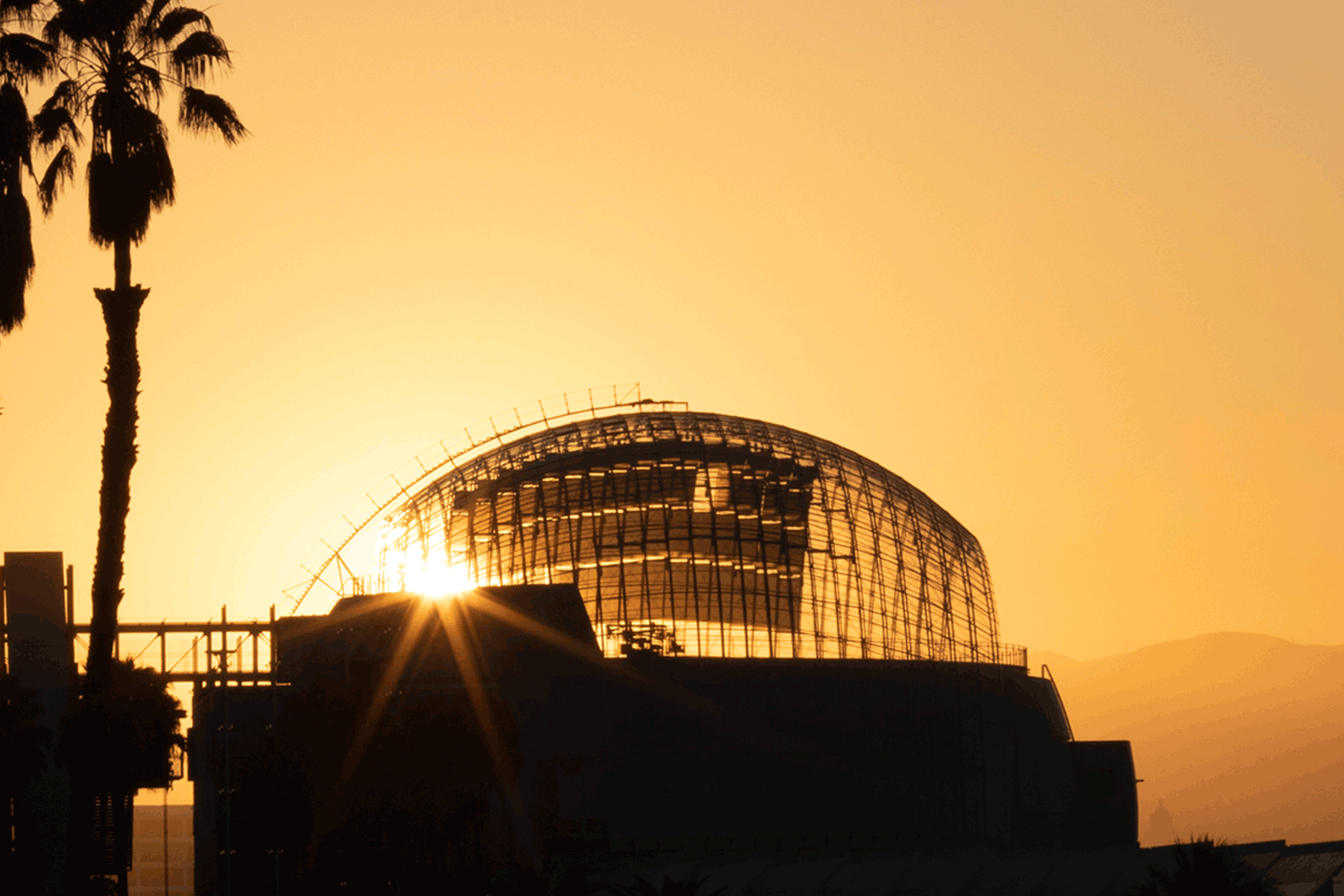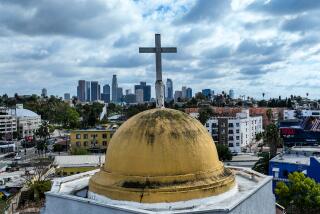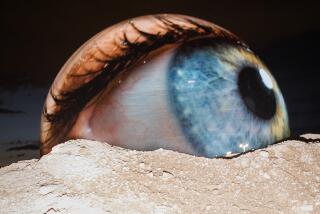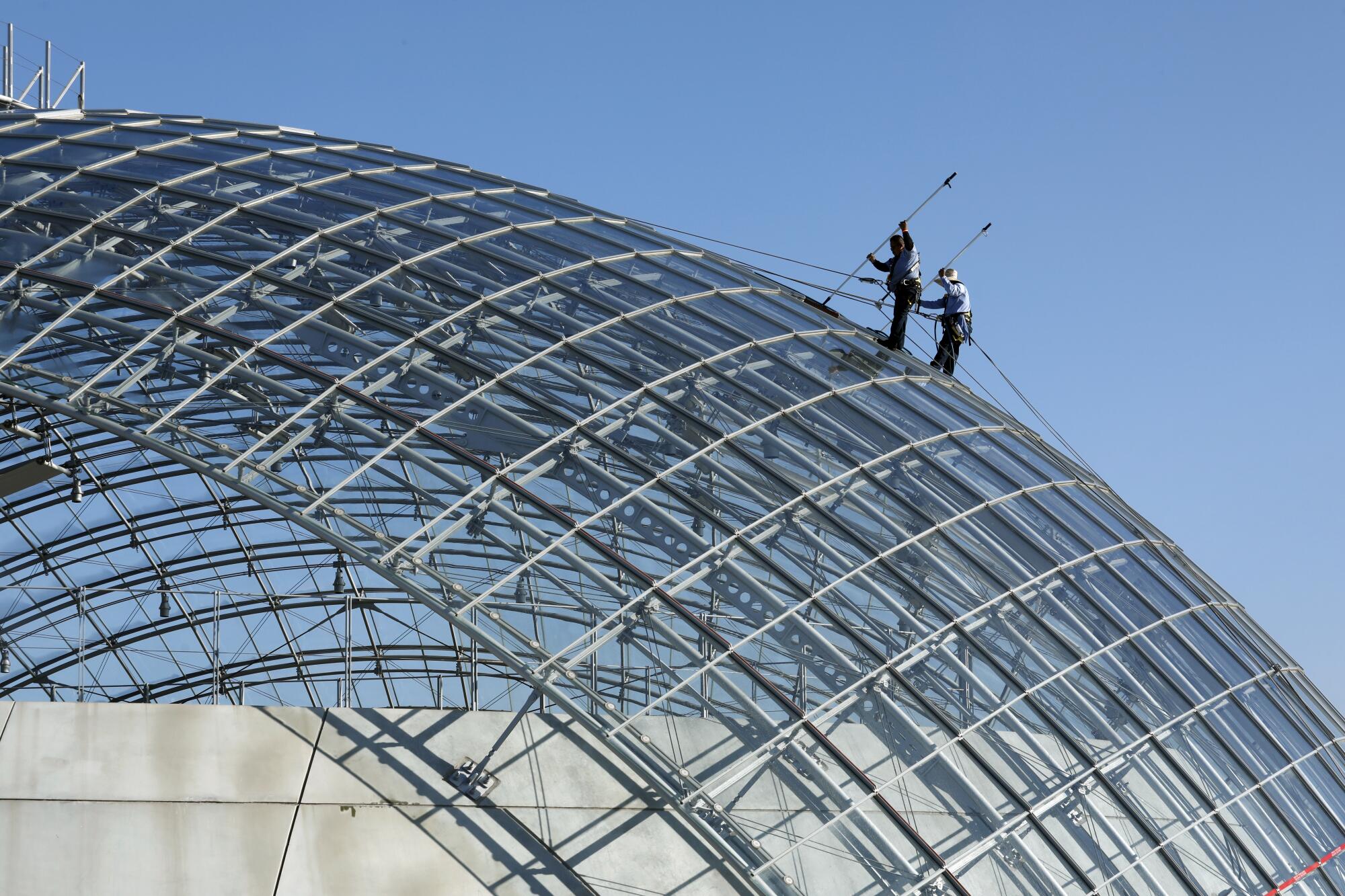
- Share via
How to clean an 11-story-high glass dome, 150 feet in diameter?
The Academy Museum of Motion Pictures is getting all spiffed up for its Sept. 30 debut. And chief among the tasks at hand is cleaning the transparent dome over architect Renzo Piano’s dramatic concrete sphere building.
Think: rock-climbing equipment.
On a recent afternoon, a crew of highly specialized window cleaners is in the midst of a complicated, potentially dangerous, roughly three-week endeavor to hand-scrub the dome’s 1,500 glass panels, both inside and outside. Next week they’ll be hanging from suspension ropes, gingerly crisscrossing the exterior of the structure — the peak of which is 100 feet from the ground — on anchor points, like Spider-Man. Today, they’re focusing on the interior.
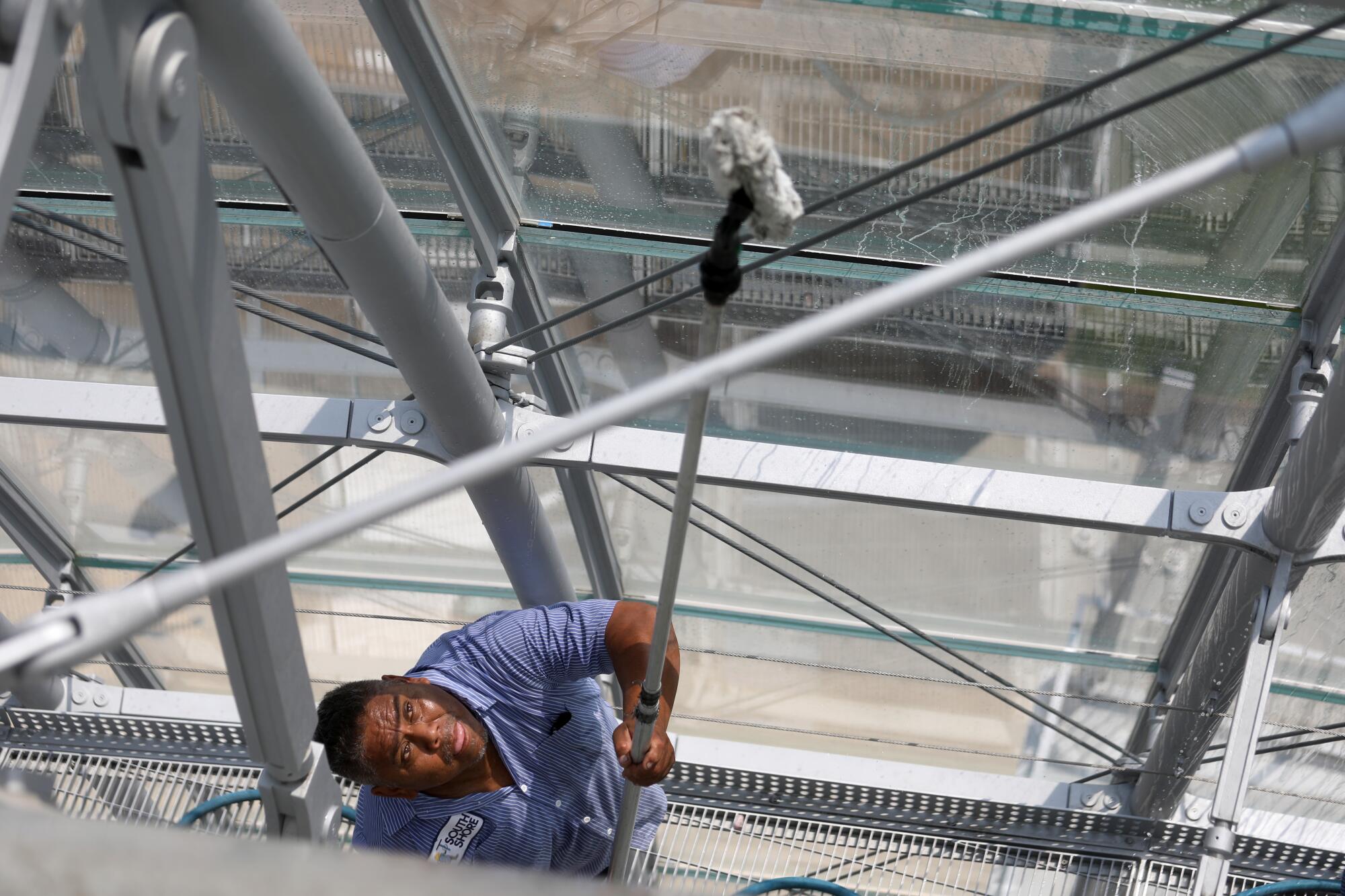
Two crew members, wielding microfiber mops and hoses, maneuver on catwalks built into the structure’s periphery, permanent fixtures for maintenance and repairs. A third person works from a specialized lift — slender, lightweight and flexible — that’s able to reach around corners and pass through doors, like the neck of a curious snake.
The sphere — a.k.a. the “Death Star” because of its futuristic look — is Piano’s crown jewel of the museum, which also occupies the 1939 former May Co. building. The lower portion of the sphere houses the museum’s 1,000-seat David Geffen Theater. The top is a 9,000-square-foot, open-air terrace with sweeping views of the Hollywood Hills and Miracle Mile area.
The Academy Museum of Motion Pictures has opened as the ultimate celebration of Hollywood history, Oscar lore and today’s movie makers.
Ensuring the dome is sparkling for its public debut is critical, said Marco Mendoza, L.A. area account manager for South Shore Building Services, which is handling the cleaning. The structure’s dramatic views are a key element of its beauty. Rain streaks, dust and soot from traffic accumulate over time.
“It’s different than a regular building,” Mendoza said. “When it’s concrete, you don’t see the buildup. This is all glass, all the way around; it holds that debris and you can see it in the reflections on the dome.”
The difference after cleaning is “day and night,” Mendoza added. “When we’re about halfway through cleaning, it’s like a different color building. One side is brownish and the other is shiny and clear.”
But the cleaning process is far more complicated than one might imagine.
South Shore, which has been in business for 42 years and counts the Getty Center and USC as clients, says maneuvering across the dome — and at such great heights — is a challenge requiring specialized equipment on which crew members must be rigorously trained.
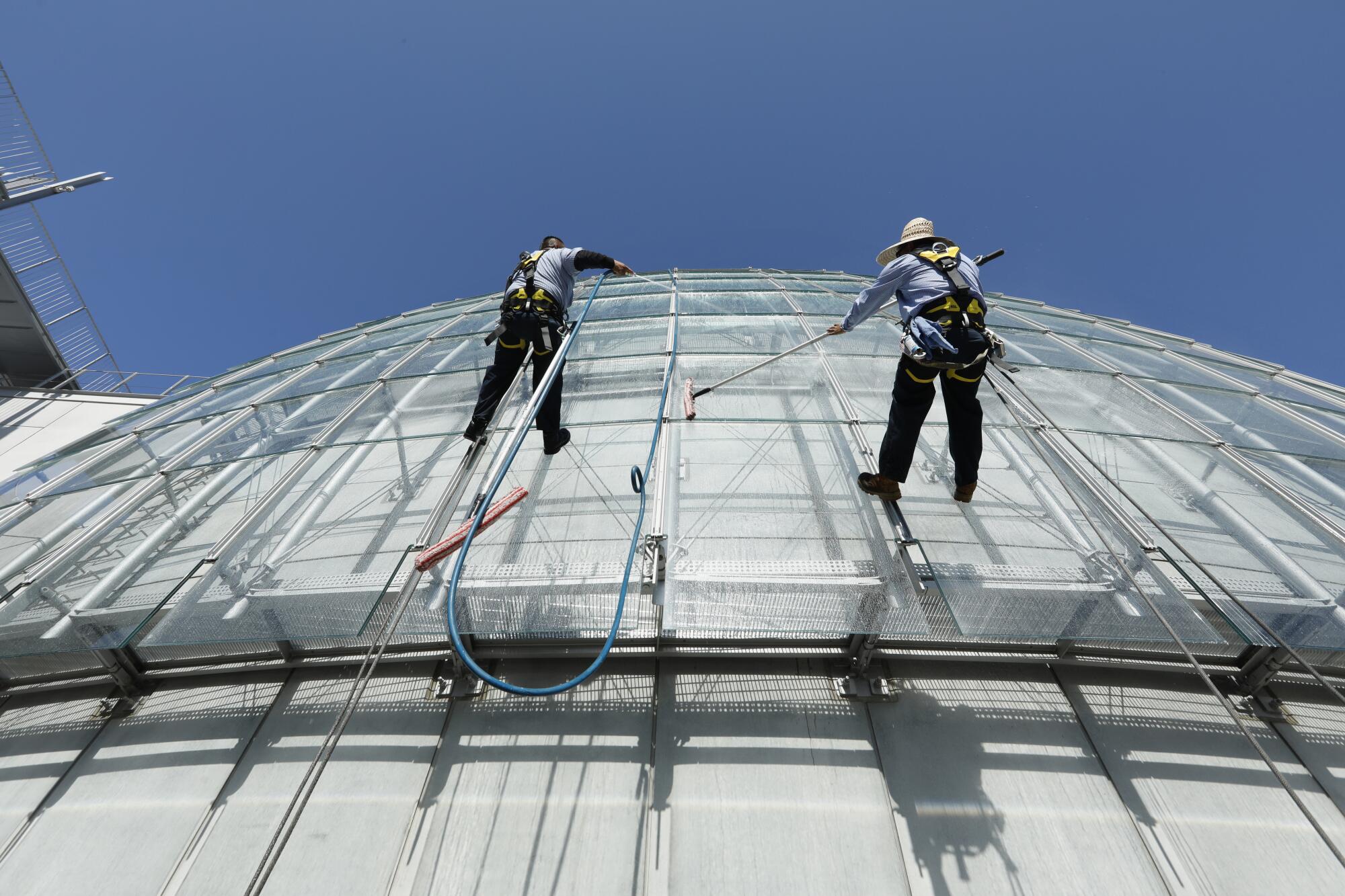
Another challenge: The glass panels are not uniform in shape and size — there are 146 different shapes — and they overlap with one another by a half-inch to three-quarters of an inch on the exterior. They’re tapered all the way around, like shingles on a Spanish rooftop, in order to realize the curvature of the structure. This creates grooves between panels where dirt can build up.
“That was a learning curve we experienced that is unique to the building,” South Shore Managing Director Connor Eubanks said of the inaugural dome cleaning in October 2020. “Sometimes you can’t even see that overlap until you’re up there on the lift, up close.”
Cleaning the interior and exterior are entirely different processes that are mapped out separately.
Outside, one crew member works from a boom lift basket, using both hands to scrub the gaps between panels with what looks like a large toothbrush. Meanwhile, two “suspension cleaners,” wearing full body harnesses and hanging from ropes, make their way around the dome’s surface using one hand to steady themselves and the other to wipe down panels with a microfiber window mop and cleaning solution. Then they hose everything down with deionized water that air dries, spotless, like at a car wash.
The suspension cleaners access the exterior of the dome from the inside, via a hatch door that opens to a built-in ladder leading to the 100-foot-high peak outside. It’s nicknamed “the mohawk ladder” because in profile, the dome looks as if it is rocking the punk-rock hairstyle. There’s a faucet attachment by the mohawk ladder, so the cleaners can hook up their hoses. Meanwhile, the worker on the lift, which is traversing the plaza’s concrete floor, must maneuver especially carefully as there are weight restrictions on parts of the concrete, to protect museum spaces beneath it. The lift isn’t allowed to drive on certain areas.
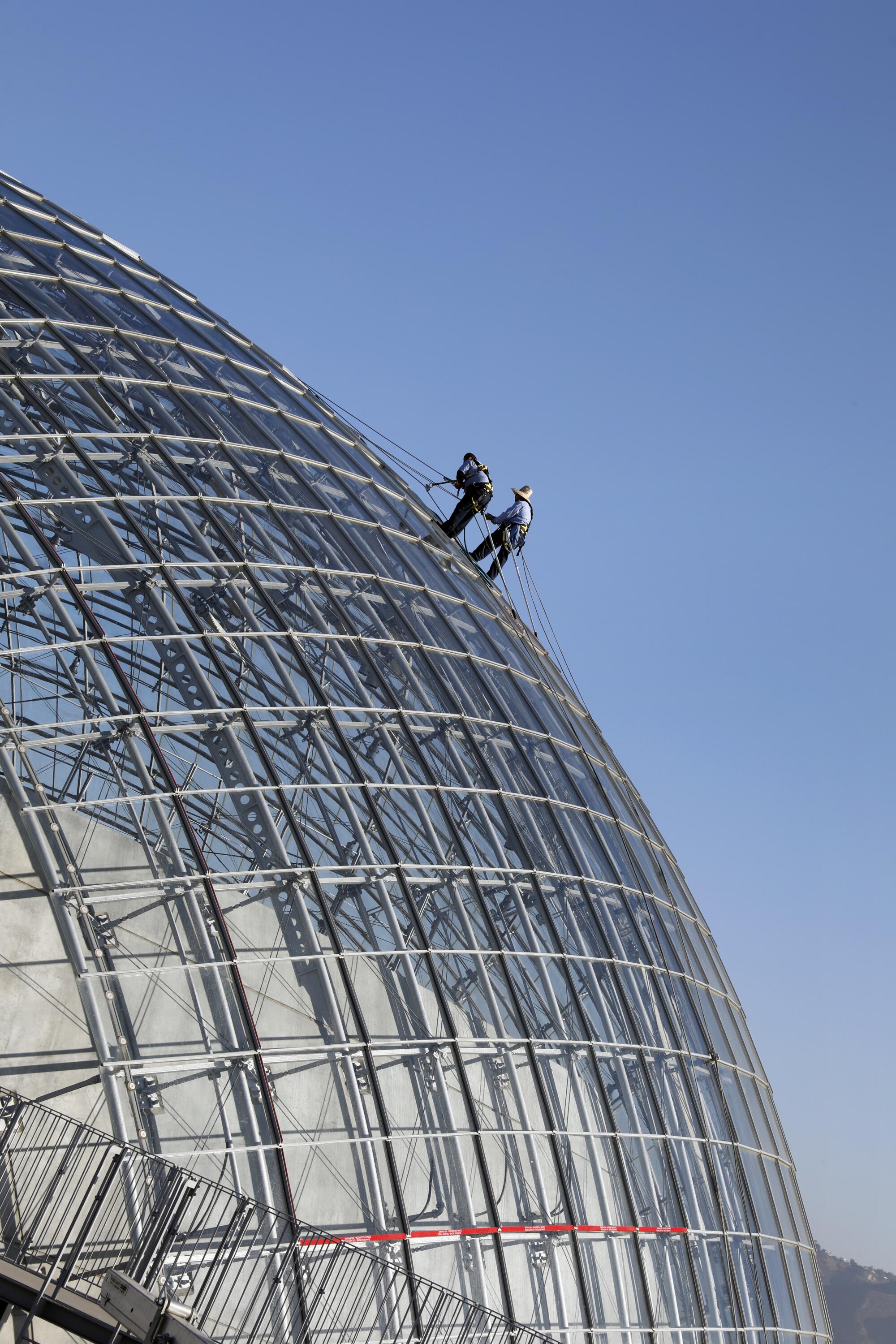
Cleaning the interior of the dome may appear less dramatic — the interior peak is just 45 to 50 feet from the terrace floor — but it’s actually more complicated and takes longer, up to two and a half weeks compared with seven days outside. That’s because in addition to the glass, the crew must hand-wash the curved steel that supports it and wipe down the electrical structures nestled inside its lattice-like grid work — things like overhead lighting and electrically powered vent panels.
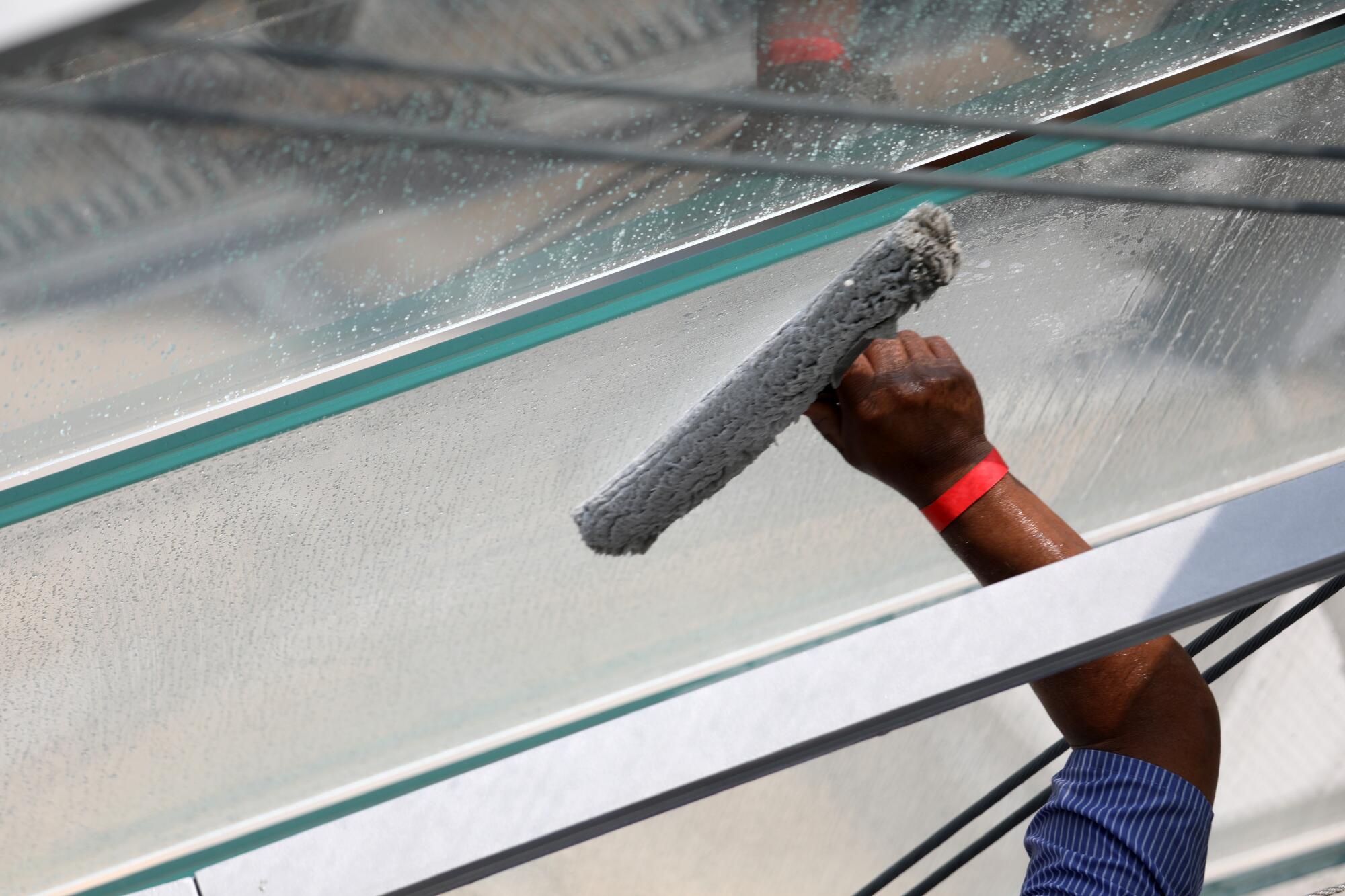
“You have all of the dome’s metal framing, suspension cables, beams, rods — pretty much the skeleton of the dome,” Mendoza said. “And you have to clean those, every visible surface, and that slows you down.”
The two suspension cleaners work from built-in catwalks along the periphery of the interior; a third crew member works from a different lift than the one used outside, in order to reach points higher than the catwalks. The workers can’t rinse the glass with a hose, as they would outdoors, because of the electrical equipment. So they must squeegee dry the glass and wipe dry everything else as they go.
Then there’s the wild card: Mother Nature.
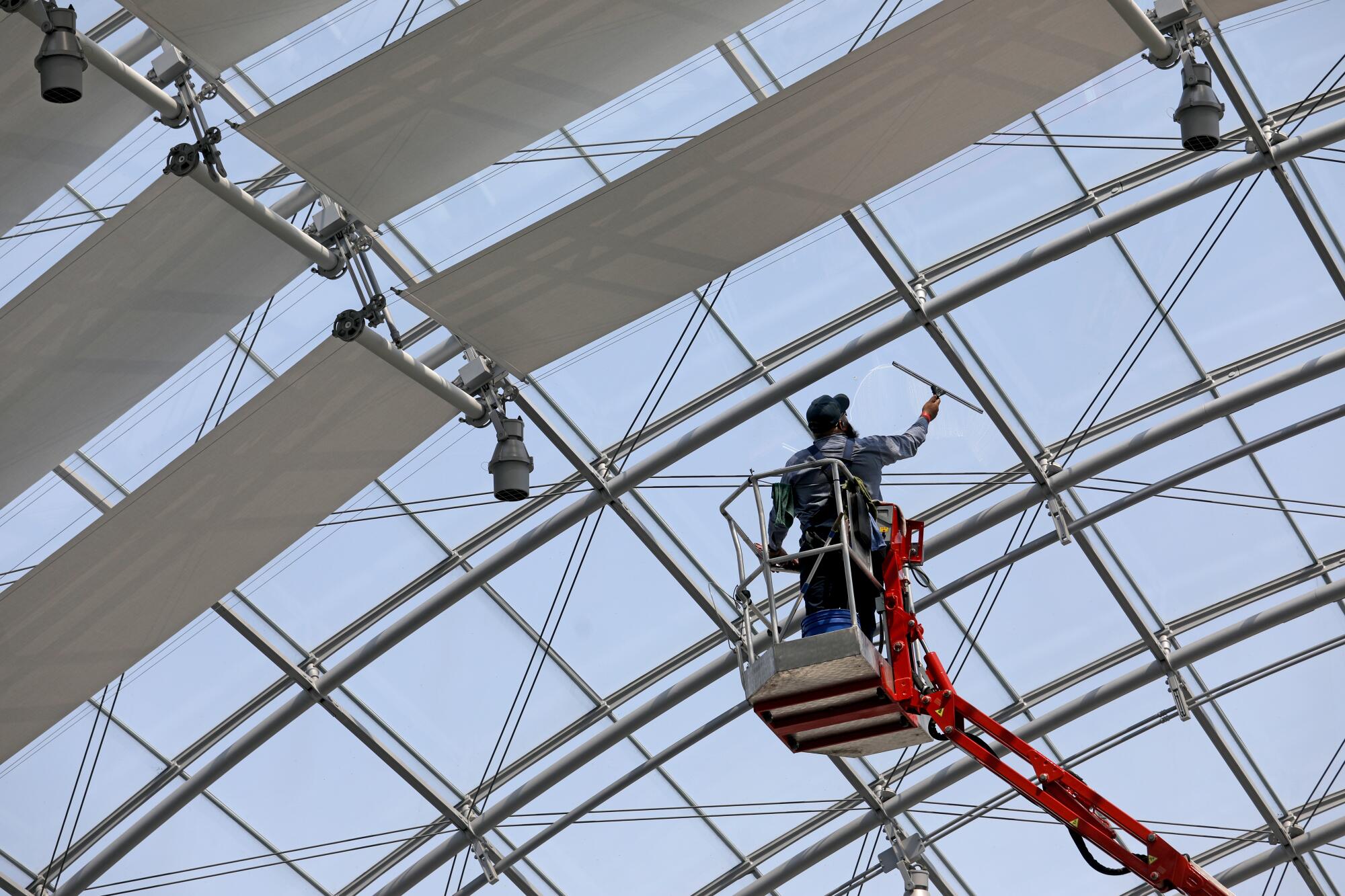
Rain, heavy winds, airborne ash particles from wildfires and surrounding wildlife, all out of the workers’ control, further complicate cleaning, especially in winter. When the wind reaches 25 miles an hour, South Shore pauses the job.
A splotch of bird poop on the dome’s surface, however, on the final day of cleaning? Fear not.
The museum dispatches a trained hawk to soar above the dome and ward off other birds.
Adjacent construction, however, is more of a threat.
“We have construction right next to [the dome] at LACMA,” Mendoza said. “That will pose a challenge. If we’re in the middle of the cleaning and there’s a lot of dust settling on the glass, and we get a mild rain, it will damage our work — it will show streaks. We’ll have to start all over again.”
But “rinse and repeat” is the name of the game.
The dome will be cleaned every other month, with a detailed cleaning of the gaps between panels once a year.
It’s time and effort well spent, Eubanks said.
“We want to make sure that when people go to see artworks that the whole experience is beautiful, not just the artwork,” he said. “What is the purpose of an all-glass building if you can’t experience the full environment and its full beauty?”
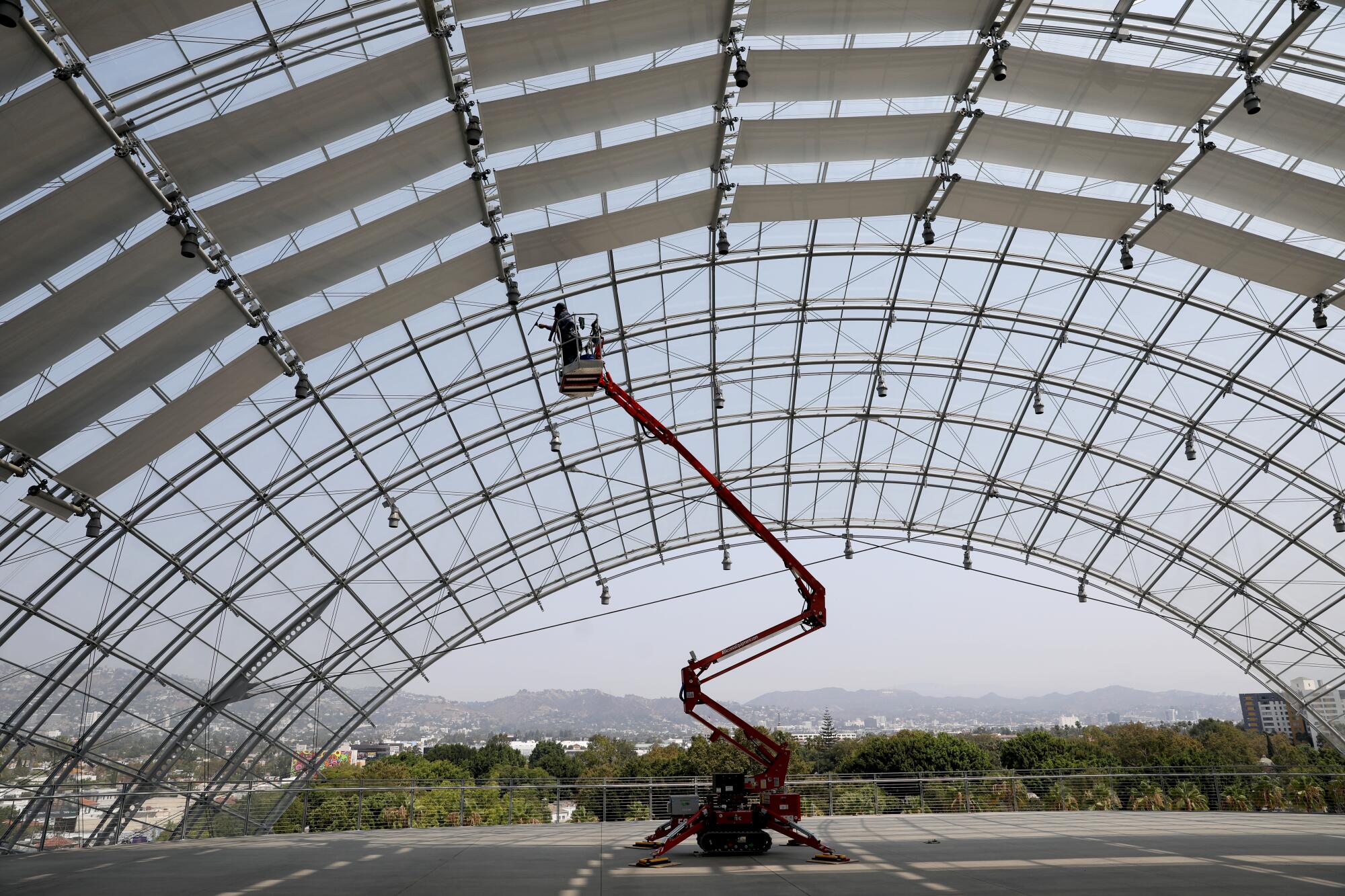
More to Read
The biggest entertainment stories
Get our big stories about Hollywood, film, television, music, arts, culture and more right in your inbox as soon as they publish.
You may occasionally receive promotional content from the Los Angeles Times.
